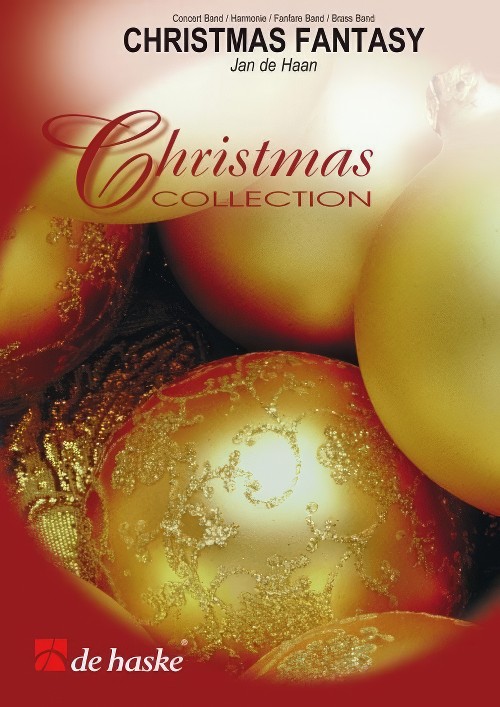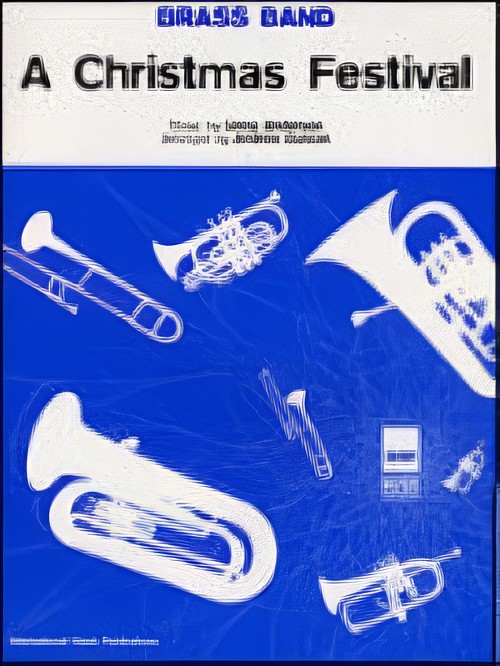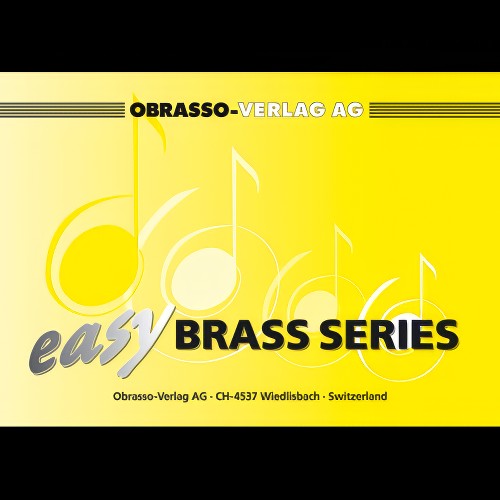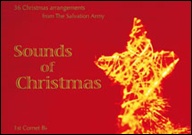Results
-
 £69.99
£69.99Christmas Fantasy (Brass Band with Optional Choir - Score and Parts) - De Haan, Jan
Christmas Fantasy is a fantastic medley by Jan de Haan which features some of the best-known songs from the Christmas season.Includes:Es ist ein Ros' entsprungenO Little Town of BethlehemOnce in Royal David's CityHark! The Herald Angel's SingGod Rest Ye Merry GentlemenGood King WenceslasEnglish and Dutch choral parts are also availble for this work.Duration: 9.00
Estimated dispatch 7-14 working days
-
 £34.99
£34.99A Christmas Festival (Brass Band - Score and Parts) - Anderson, Leroy - Duncan, Andrew
Originally composed in 1950 for Arthur Fiedler's Boston Pops Orchestra, A Christmas Festival is the most famous Christmas medley of all. Leroy Anderson's sparkling selection includes Joy to the World, Deck the Halls, God Rest Ye Merry Gentlemen, Good King Wenceslas and Hark the Herald Angels Sing.Suitable for Advanced Youth/3rd Section Bands and aboveDuration: 7.00
Estimated dispatch 7-14 working days
-
 £50.90
£50.90CELEBRATION OF CHRISTMAS, A (Brass Band) - Lorriman, Howard
Includes: Hark! The Herald Angels Sing; Christmas Lullaby; Tochter Zion (Zion's Daughter). Grade: Easy/Medium.
Estimated dispatch 7-14 working days
-
 £42.95
£42.95CHRISTMAS ADVENTURE (Brass Band) - Barry, Darrol
An exciting rhythmic selection including: Hark the Herald Angels Sing; The Holly and the Ivy; O Tannenbaum.
Estimated dispatch 7-14 working days
-
 £50.90
£50.90CHRISTMAS CELEBRATION, A (Brass Band) - Lorriman, Howard
Angels, from the Realms of Glory. Grade: Easy/Medium.
Estimated dispatch 7-14 working days
-
 £59.70
£59.70Four Christmas Carols (Brass Band - Score and Parts) - Woodfield, Ray
Slightly reduced Brass Band instrumentation (no rep cornet, no 2nd horn, no 2nd trombone part)Includes: Silent Night; Hark, The Herald Angels Sing; O Come, All Ye Faithful; Christians, Awake!
Estimated dispatch 7-14 working days
-
 £76.99
£76.99Prima Luce (Brass Band - Score and Parts)
Prima Luce (First Light) was commisioned by the Holy Angels Elementary School located in Aurora (USA). The name of the town (which means dawn), the town's great religious history and the fact that this town was one of the first in the USA to have streetlights were the inspiration for this Gregorian influenced atmospheric composition 08:43
Estimated dispatch 7-14 working days
-
 £29.95
£29.95SOUNDS OF CHRISTMAS (Full Score)
Sounds of Christmas is a brand new collection of 36 Christmas arrangements and compositions that can be played by groups as small as five players, with the parts available as follows: Part 1: Bb and C; Part 2: Bb, Eb and F; Part 3: Bb, Eb, F and C BC; Part 4: Bb TC and C BC; Part 5: Eb TC, Bb TC and C BC. The full score does not contain all the instruments available, only the Bb and Eb pitched instruments (except the optional Eb Soprano cornet) and Percussion. Sounds of Christmas is sure to add interest to your Christmas carol playing and offers interesting additions to your Christmas concert repertoire. Includes: A Holly Waltz (The Holly and the Ivy); A Starry Night; Away in a Manger; Chiming Bells (Sweet Chiming Christmas Bells); Christmas Joy (March); Christmas Praise (March); Coventry Carol; Ding Dong! (Ding Dong! Merrily on High); God Rest You Merry, Gentlemen; Good Christian Men, Rejoice; Good King Wenceslas; Hark! THe Herald Angels Sing; Have Yourself a Merry Little Christmas; Infant Holy; It Came Upon a Midnight Clear; Jesus, Good Above All Other; Joy to the World; Mary's Boy Child; Mid-Winter (In the Bleak Mid-Winter); Normandy Carol (Away in a Manger); O Come, All Ye Faithful; O Little Town of Bethlehem; Once in Royal David's City; Rudolph, the Red-Nosed Reindeer; Silent Night; Sounds of Christmas (March Medley); The Andel Message (While Shepherds Watched); The Everlasting Light (O Little Town of Bethlehem); The First Nowell; The Infant King; The Manger Scene; The Virgin Mary had a Baby Boy; Three Kings' March; To Celebrate His Birth (March); We Wish You a Merry Christmas; Yuletide Rag (Deck the Hall).
Estimated dispatch 7-14 working days
-
 £64.00
£64.00SPIRIT OF CHRISTMAS, The (Brass Band) - Fernie, Alan
Includes: Hark, The Herald Angels Sing; O Holy Night (cornet solo); O Come All Ye Faithful; Silent Night (Wiegenlied). Grade: Medium.
Estimated dispatch 7-14 working days
-
 £54.20
£54.20VOLUNTARY ON TWO CHRISTMAS CAROLS (Brass Band) - Freeh, Mark
Includes: Ding, Dong, Merrily on High; Angels, From the Realms of Glory. Grade: Medium.
Estimated dispatch 7-14 working days
